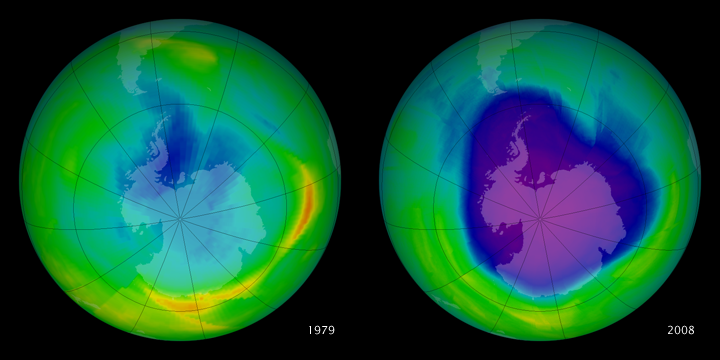
noun
- any part of the ozone layer that has become depleted by atmospheric pollution, resulting in excess ultraviolet radiation passing through the atmosphere.
- A severe depletion of ozone in a region of the ozone layer, particularly over Antarctica and over the Arctic. The depletion is caused by the destruction of ozone by CFCs and by other compounds, such as carbon tetrachloride (CCl4) and carbon tetrafluoride (CF4). The amount of ozone in ozone holes is about 55 to 60 percent of the normal concentration in the ozone layer. Although the full effect of increased ozone depletion is not yet known, the amount of ultraviolet radiation the Earth receives is greatly increased by ozone depletion, creating a heightened risk of skin cancers and likely contributing to global warming. See Note at ozone.
A depletion of ozone that occurs over Antarctica in the winter. The ozone returns to normal levels in the summer, and the amount of depletion varies from year to year. The hole is thought to be caused by a combination of the peculiarities of atmospheric circulation (see atmosphere) near the South Pole and chemical reactions involving chlorofluorocarbons in the atmosphere and ice crystals in clouds.
 Liberal Dictionary English Dictionary
Liberal Dictionary English Dictionary